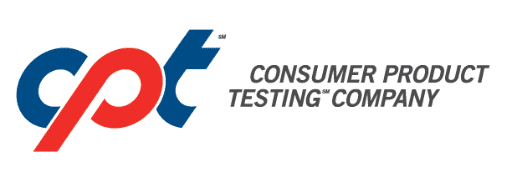“Free Of” or “Does Not Contain” Claims
Consumers are taking a greater interest in the composition of the products that they purchase for use by themselves and their families, more than ever before. It is now common for consumers to make purchase decisions right at the store shelf, comparing product labeling and noting the presence or absence of ingredients which may be of concern to them. For this reason, increasing numbers of product labels now include statements regarding the absence of specific ingredients and contaminants.
What is a “Free-of” or “Does-not-contain” claim?
It is a claim that a product, package or service is free of, or does not contain (or use) a specified substance.
Is there a U.S. regulation governing “Free-of” or “Does-not-contain” claims?
Yes. The regulation governing these types of claims is found in 16 CFR 260.9 entitled “Free-of claims”. Products marketed within the EU are currently not permitted to include “Free-of” claims in their labeling.
What are the requirements for making a “Free-of” or “Does-not-contain” claim?
- The claim must be truthful and not deceptive.
- The product, package or service must be free of, or not contain or use the specified substance.
- The product, package or service must be free of, or not contain or use substances that pose the same or similar risks as the specified substance.
- The specified substance must be associated with the product category.
Can I still make a “Free-of” or “Does-not-contain” claim if only a trace amount of the substance is present in, or is used for my product?
Yes, but only if all the following conditions are met:
- The level of the specified substance is no more than that which would be found as an acknowledged trace contaminant or background level. (These italicized terms are imprecise, and their meanings are defined on a case-by-case basis according to the nature of the specified substance, and the product area concerned.)
- The presence of the substance does not cause material harm that consumers typically associate with that substance.
- The substance has not been intentionally added to the product, container or service.
What should be considered when planning testing in support of “Free-of” claims?
- Testing should be conducted at the highest degree of sensitivity.
- Testing methods should be Official (Compendial) or properly Validated.
- Employ product testing and cleaning validation activities in support of claims.
What are common substances that “Free-of” claims are currently being made for?
Parabens, Phthalates, Gluten, Allergens, Sulfates, Bis Phenol A, BHA, BHT, Specific Elemental Impurities and more…
How can CPTSM assist you with planning and testing in support of “Free-of” claims that you choose to make for your product, container or service?
Our in-house experts are ready to offer guidance in determining the proper testing scheme in support of the “Free-of” claim you choose to make. Give us a call, even if you only wish to learn more about the regulatory landscape for making these claims.
Our Capabilities
CPTSM maintains state-of-the-art Analytical, Microbiological, Clinical, Photobiology and In Vitro Toxicology laboratories, all at a high level of regulatory compliance and at your immediate disposal for determining the quality, safety, stability and efficacy of your products.
CPTSM regularly conducts all types of testing in our specialized departments on a wide range of products including pharmaceuticals (OTC and Rx), medical devices, dietary supplements and personal care/cosmetics. Our in-house experts offer one-on-one guidance in selecting the most appropriate and cost-effective testing strategies for your products.
Regulated products require testing of the highest accuracy, conducted within an environment of full regulatory compliance. Because the accuracy of test results and the level of compliance under which they were generated are of equal importance to our professionals at CPTSM, just as they are to FDA and other regulatory agencies, please allow us to assist you with all of your testing needs.
